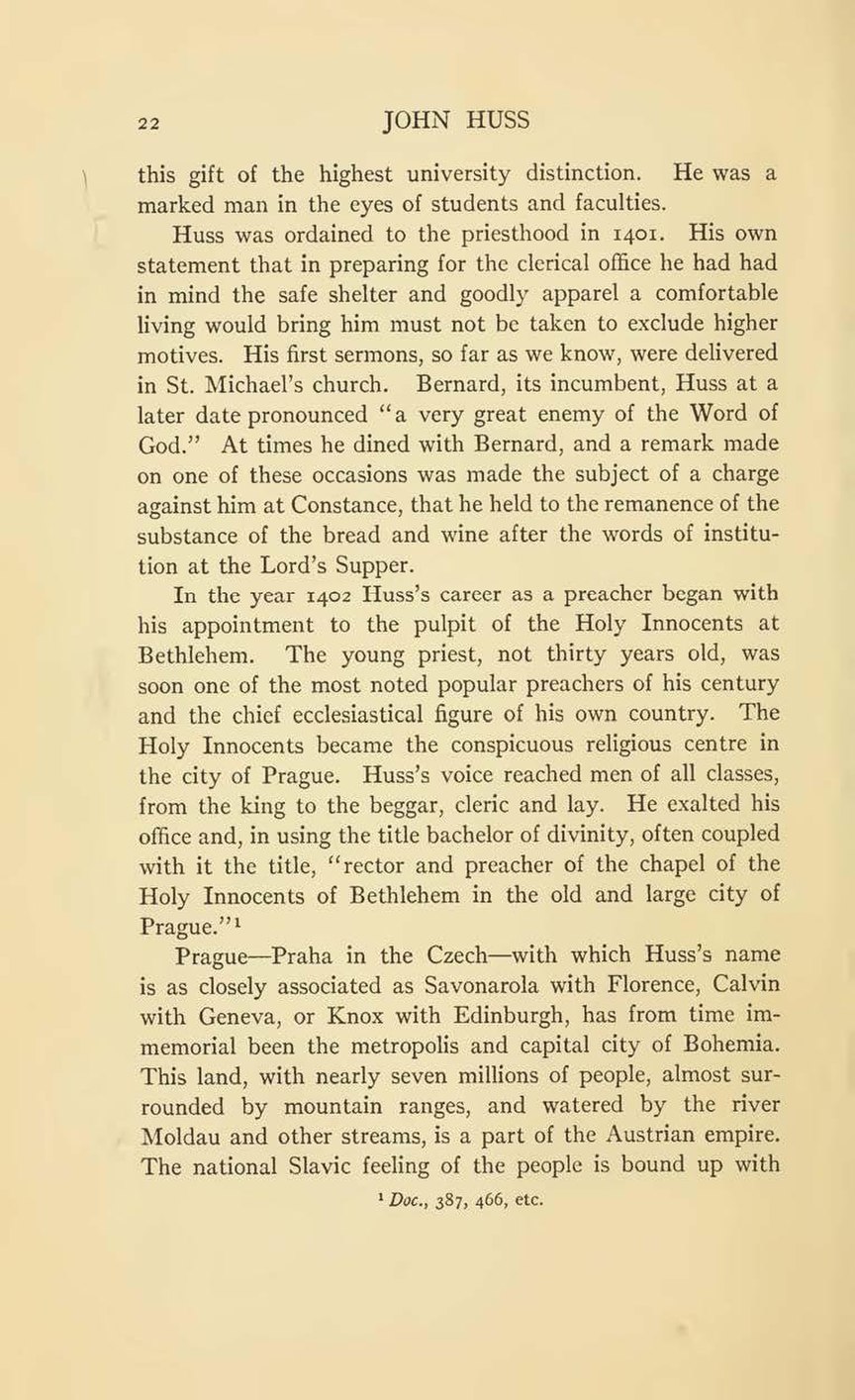this gift of the highest university distinction. He was a marked man in the eyes of students and faculties.
Huss was ordained to the priesthood in 1401. His own statement that in preparing for the clerical office he had had in mind the safe shelter and goodly apparel a comfortable living would bring him must not be taken to exclude higher motives. His first sermons, so far as we know, were delivered in St. Michael’s church. Bernard, its incumbent, Huss at a later date pronounced “a very great enemy of the Word of God.” At times he dined with Bernard, and a remark made on one of these occasions was made the subject of a charge against him at Constance, that he held to the remanence of the substance of the bread and wine after the words of institution at the Lord’s Supper.
In the year 1402 Huss’s career as a preacher began with his appointment to the pulpit of the Holy Innocents at Bethlehem. The young priest, not thirty years old, was soon one of the most noted popular preachers of his century and the chief ecclesiastical figure of his own country. The Holy Innocents became the conspicuous religious centre in the city of Prague. Huss’s voice reached men of all classes, from the king to the beggar, cleric and lay. He exalted his office and, in using the title bachelor of divinity, often coupled with it the title, “rector and preacher of the chapel of the Holy Innocents of Bethlehem in the old and large city of Prague.”[1]
Prague—Praha in the Czech—with which Huss’s name is as closely associated as Savonarola with Florence, Calvin with Geneva, or Knox with Edinburgh, has from time immemorial been the metropolis and capital city of Bohemia. This land, with nearly seven millions of people, almost surrounded by mountain ranges, and watered by the river Moldau and other streams, is a part of the Austrian empire. The national Slavic feeling of the people is bound up with
- ↑ Doc., 387, 466, etc.
